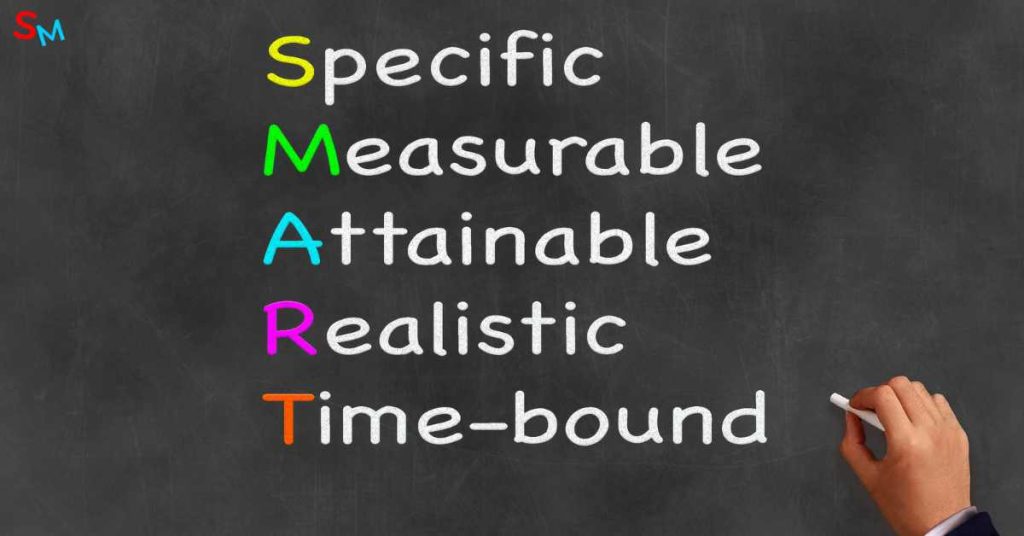Financial goals you should set for the new year
As we begin a new year, many of us are thinking about our goals and resolutions for the coming months. While health and fitness goals often take centre stage, it’s also important to consider our financial goals. Setting financial goals is an essential part of achieving financial security and stability, whether it’s paying off debt, saving for a down payment on a home, or planning for retirement. By setting specific, measurable, achievable, relevant, and time-bound goals, you can create a roadmap for achieving financial success and ensure that your hard-earned money is working for you.
In this article, we’ll explore some short-term and long-term financial goals to consider setting for the new year and provide tips for how to achieve them. Whether you’re just starting your financial journey or looking to take your finances to the next level, this article will provide you with valuable insights and strategies for achieving your financial goals.
Related Articles;
- 7 Top Financial Moves To Make When Your Savings Reaches $100,000
- Where Should You Put Your Money To Earn The Most Interest?
- Personal budget: 7 Simple Ways to create a budget that works for you
What are financial goals?

Financial goals are things you want to achieve with your money in the future. It’s like having a target you want to reach with your allowance or earnings. Just like when you set a goal in a game, you have a clear idea of what you want to achieve, and you know what you need to do to get there.
Let’s say you’re a gamer, and you want to get to the next level. You know that you need to collect a certain amount of points or complete a specific task to reach that level. Similarly, financial goals are like levels in the game of life, and you need to work towards them to achieve them.
For example, your financial goal could be to save up a certain amount of money to buy a new game or a new gadget. You need to plan how much money you need to save each week or month to achieve that goal. Or you may have a long-term financial goal, like saving up for college or buying your own car.
Not having financial goals can be a disadvantage because you may end up spending your money on things you don’t really need, and not having enough money for things that are important to you in the long run. For example, if you spend all your allowance on video games every week, you may not have enough money to save up for a new phone or other things you may need in the future.
What makes a good financial goal?

A good financial goal should be specific, measurable, achievable, relevant, and time-bound. This is often referred to as the SMART, Here’s what each of those means:
1. SPECIFIC:
Setting a specific financial goal is important because it gives you a clear target to work towards. When you know exactly what you want to achieve, you can plan your actions and track your progress. A specific goal also helps you to avoid distractions and stay focused on what’s important.
To make your financial goal specific, start by asking yourself these questions: What exactly do I want to achieve? Why is this goal important to me? What are the steps I need to take to achieve this goal?
Let’s say you want to save money for a trip to Disneyland. A specific goal would be “I want to save $1,500 in six months to pay for my trip to Disneyland.” This goal is specific because it answers the questions of what you want to achieve, how much you need to save, and the timeframe you have to achieve it.
To make your goal even more specific, you can break it down into smaller goals or steps. For example, “I want to save $250 each month for six months by cutting down on eating out, reducing my shopping expenses, and putting any extra money into my savings account.”
Another example of a specific goal could be “I want to pay off my credit card debt of $5,000 in 12 months.” This goal is specific because it defines the amount you want to pay off and the time frame you want to do it in.
2. MEASURABLE
Making your financial goal measurable is important because it allows you to track your progress and adjust your actions accordingly. By having a measurable goal, you can set targets and milestones that help you stay motivated and on track towards achieving your financial objectives.
To make your financial goal measurable, start by defining specific numbers or metrics that you can use to track your progress. For example, if your goal is to save $5,000 for a down payment on a house, you can set a measurable target to save $417 each month for 12 months.
Another example of a measurable goal is “I want to reduce my monthly expenses by $100 in three months.” This goal is measurable because you can track your expenses each month and adjust your spending habits to achieve your target.
To make your goal even more measurable, you can break it down into smaller, more specific targets. For instance, if your goal is to pay off a credit card debt of $5,000 in 12 months, you can set a measurable target to pay off $417 each month.
To measure your progress towards your financial goal, you can use a variety of tools and methods such as spreadsheets, financial apps, or tracking your expenses manually. By measuring your progress regularly, you can celebrate your successes, identify areas for improvement, and stay motivated to achieve your financial goals.
3. ACHIEVABLE
Setting an achievable financial goal is important because it helps you to stay motivated and avoid discouragement. An achievable goal is one that is realistic and attainable, given your current financial situation and resources. If your goal is too lofty or impossible, it can lead to frustration and may cause you to give up on your financial plan altogether.
To make your financial goal achievable, start by assessing your current financial situation. Look at your income, expenses, and any existing debt or financial obligations. Based on this assessment, you can set a goal that is realistic and attainable within a specific time frame.
For example, if you currently earn $40,000 per year, it may not be realistic to set a goal of saving $100,000 in one year. A more achievable goal could be to save $5,000 over the course of the year by cutting back on expenses and increasing your income through a side hustle.
Another example could be paying off your credit card debt. If you owe $10,000 on your credit cards and your current budget allows you to put an extra $500 towards debt each month, it may be achievable to pay off your debt in 20 months.
To make your goal even more achievable, break it down into smaller milestones. For example, if your goal is to save $5,000 in a year, set a monthly savings goal of $417. This makes the goal more manageable and allows you to track your progress along the way.
4. RELEVANT
Setting a relevant financial goal is important because it ensures that your goal is aligned with your overall financial objectives and priorities. A relevant goal is one that matters to you and is connected to your long-term financial goals. It’s important to set relevant financial goals because they help you to stay focused on what’s important and avoid wasting time and resources on goals that won’t make a significant impact on your financial well-being.
To make your financial goal relevant, start by asking yourself why this goal matters to you and how it fits into your overall financial plan. Consider whether achieving this goal will bring you closer to achieving your long-term financial objectives.
For example, if your long-term goal is to buy a house, a relevant financial goal could be to save for a down payment. Saving for a down payment is relevant because it is directly connected to your long-term goal of owning a home.
Another example could be paying off high-interest debt. This goal is relevant because it can help you to reduce your debt burden and free up more money for saving and investing in the future.
Also, consider the timing and resources required to achieve it. For example, if you want to save for a down payment, you may need to adjust your budget and reduce expenses to free up more money for savings.
5. TIME-BOUND
Setting a time-bound financial goal is important because it gives you a sense of urgency and helps you to stay focused on achieving your goal within a specific time frame. Without a deadline, it’s easy to procrastinate or lose motivation, which can delay or even prevent you from achieving your financial goals.
To make your financial goal time-bound, start by setting a specific date or time frame for achieving your goal. This will help you to create a sense of urgency and keep you motivated throughout the process.
For example, if your goal is to save $10,000 for a down payment on a house, you could set a time-bound goal of saving $500 per month for 20 months. This gives you a specific deadline for achieving your goal and helps you to break it down into smaller, more manageable milestones.
Another example could be paying off a credit card balance. If you owe $5,000 on your credit card and want to pay it off within a year, you could set a time-bound goal of paying $417 per month for 12 months.
You should also consider setting up automatic contributions to a savings or investment account. This will help you to stay on track and make progress towards your goal without having to think about it every month.
8 Reasons Why Should You Have Financial Goals?

1. Provides direction
Financial goals provide direction for your financial decisions and help you to prioritize your spending, saving, and investing activities. With clear financial goals, you can make informed decisions that align with your values and long-term objectives.
2. Increases motivation
Setting financial goals can increase your motivation and sense of purpose. When you have a clear vision of what you want to achieve, you’re more likely to stay focused and committed to your financial plan.
3. Helps measure progress
Financial goals provide a way to measure your progress and celebrate your achievements along the way. By tracking your progress towards your goals, you can see how far you’ve come and make adjustments as needed.
4. Encourages financial discipline
Financial goals encourage financial discipline and help you to develop good financial habits such as budgeting, saving, and investing. By sticking to your financial plan, you can build wealth and achieve financial independence over time.
5. Reduces financial stress
Having financial goals can reduce financial stress by providing a sense of control and confidence in your financial future. By knowing what you want to achieve and having the plan to get there, you can avoid feeling overwhelmed or anxious about your finances.
6. Enables better decision-making
Having clear financial goals can help you make better decisions when it comes to spending, saving, and investing. When faced with financial choices, you can evaluate whether they align with your goals and make informed decisions that support your long-term objectives.
7. Helps prioritize expenses
Financial goals can also help you prioritize your expenses and distinguish between needs and wants. By setting specific goals for saving and investing, you can ensure that you’re allocating your resources towards the things that matter most to you.
8. Increases financial literacy
Setting financial goals can increase your financial literacy and knowledge. As you work towards your goals, you’ll likely learn more about personal finance, investing, and money management, which can help you make better financial decisions in the future.
9. Encourages proactive planning
Financial goals encourage proactive planning and can help you prepare for future challenges and opportunities. By setting goals for emergency savings, retirement, and other important financial milestones, you can be better equipped to navigate unexpected circumstances and achieve financial security.
9 Examples of financial goals

1. Build an emergency fund
Establish a savings account with enough money to cover 3-6 months of living expenses in case of an unexpected event, such as a job loss or medical emergency.
2. Pay off debt
Make a plan to pay off your credit card balances, student loans, or other debts in a specified time frame. This can help reduce stress and improve your credit score.
3. Save for retirement
Set a goal for how much you want to save for retirement and create a plan to achieve it. This might involve contributing to a 401(k), IRA, or other retirement accounts.
4. Save for a down payment on a home
Determine how much you need to save for a down payment on a home and set a timeline for achieving that goal. This can help make the home-buying process more affordable and less stressful.
5. Create a budget
Set a budget to help you manage your expenses, save money, and achieve your financial goals. This can involve tracking your spending and making adjustments to your budget as needed.
6. Invest for the future
Establish a plan for investing in stocks, bonds, or other assets that aligns with your long-term financial goals.
7. Save for education
Set a savings goal for education-related expenses, such as tuition or books, and create a plan to achieve it. This can help make education more affordable and accessible.
8. Build a passive income stream
Set a goal to generate passive income through rental properties, dividend-paying stocks, or other investments. This can help increase your financial security and provide more flexibility in your lifestyle.
9. Improve credit score
Set a goal to improve your credit score by paying bills on time, reducing debt, and keeping your credit utilization low.
See How to Set Financial Goals for Your Future
6 Short-term financial goals you should set for the new year

1. Build an emergency fund
As mentioned earlier, having an emergency fund can provide a financial safety net in case of unexpected events such as a job loss or medical emergency. Setting a short-term goal of building up a small emergency fund (such as $1,000) can help you get started on this important goal.
2. Pay off high-interest debt
If you have high-interest debt such as credit card balances or personal loans, setting a short-term goal to pay off a certain amount of this debt can help you reduce the amount of interest you’re paying and improve your credit score.
3. Create a budget
Setting a short-term goal of creating a budget can help you manage your expenses, save money, and achieve your financial goals. You can start by tracking your spending for a month and then use that information to create a realistic budget that you can stick to.
4. Reduce unnecessary expenses
Setting a short-term goal of reducing unnecessary expenses can help you save money and put more towards your other financial goals. This might involve cutting back on eating out, cancelling subscriptions you don’t use, or finding ways to save on your utility bills.
5. Increase your income
Setting a short-term goal of increasing your income, whether through asking for a raise, taking on a side hustle, or finding a higher-paying job, can help you achieve your financial goals more quickly.
6. Save for a specific expense
If you have a specific expense coming up, such as a vacation or a home renovation project, setting a short-term savings goal for that expense can help you save up the necessary funds without relying on credit.
6 Long-term financial goals you should set for the new year

1. Retirement savings
Setting a long-term goal for retirement savings can help ensure you have enough money to live comfortably in your golden years. Consider setting a specific dollar amount or percentage of your income to save each year.
2. Homeownership
If you’re currently renting or want to upgrade to a larger or more desirable home, setting a long-term goal for homeownership can help you save up for a down payment, improve your credit score, and plan for ongoing homeownership expenses.
3. Debt freedom
If you have significant debt, setting a long-term goal for debt freedom can help you reduce stress and improve your credit score. This might involve creating a debt repayment plan or working with a financial advisor to find the best strategies for paying off your debt.
4. Education savings
Whether you’re saving for your own education or your child’s, setting a long-term goal for education savings can help you manage the costs of tuition, books, and other expenses.
5. Investment portfolio growth
If you’re interested in building wealth over time, setting a long-term goal for investment portfolio growth can help you maximize your returns and achieve financial independence. Consider working with a financial advisor to develop a personalized investment strategy that aligns with your goals.
6. Charitable giving
If you’re passionate about supporting causes you care about, setting a long-term goal for charitable giving can help you make a difference in your community and feel more fulfilled. Consider identifying specific organizations or causes you want to support and creating a plan to donate a certain percentage of your income each year.
See How to Set Long-Term Financial Goals
Conclusion
Setting financial goals is crucial for achieving financial security and stability. Whether you’re setting short-term financial goals to reduce debt or create a budget, or long-term financial goals to save for retirement or homeownership, having a clear roadmap can help you stay on track and make steady progress over time. By setting specific, measurable, achievable, relevant, and time-bound goals, you can stay motivated and achieve success. Remember that financial goals are unique to each individual, and it’s important to regularly review and adjust your goals based on changing circumstances and priorities. With dedication, discipline, and the right financial strategies, you can achieve financial freedom and create the life you want.
[…] over and taking charge of your life. When setting goals, it is important to make sure that they are S.M.A.R.T. goals. S.M.A.R.T. stands for Specific, Measurable, Achievable, Relevant, and […]